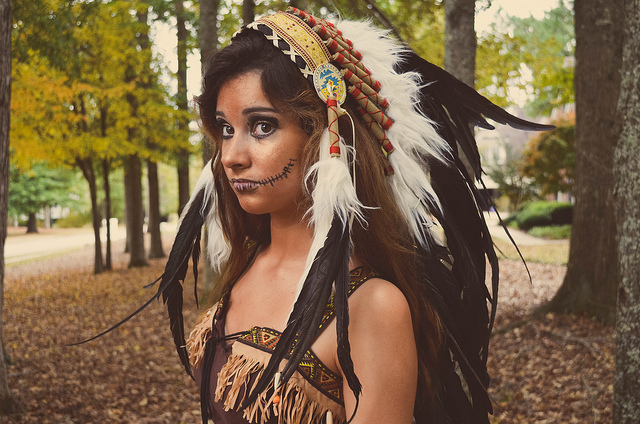It’s that time of year when you’re allowed to dress in even less clothing than you normally wear to the Grove. No, not Rocky Horror Picture Show – it’s Halloween!
While some invest much time in perfecting their costumes for this exciting night, we often reduce choosing catchy costumes into acts of cultural appropriation. We may have innocently selected our evening attire, but if our costumes feature elements snatched from a marginalized culture, then our ignorance can do more harm than a new Facebook photo is worth.
The issue of cultural appropriation is tricky. What does it matter if I’m a hula dancer or a Mexican or a Native American for Halloween? If I look fierce, isn’t that enough? Can’t people stop being so sensitive?
The issue goes deeper than just offending others.
Cultural appropriation perpetuates unequal power dynamics between historically powerful groups and marginalized groups. The differences between cultural appropriation and cultural exchange are respect for the culture that is not your own and an invitation to participate in another group’s traditions.
Here at the University of Miami, we have many opportunities to participate in respectful cultural exchange – including cultural club meetings and Diversity Week, which starts Nov. 11.
No matter our backgrounds, we are all privileged to be university-educated students. We are better positioned than most of the world to address challenges of discrimination and inequality.
This week allows us to start addressing these challenges by consciously choosing not to turn other groups into caricatures. Aside from marginalized cultures, we can also stray away from costumes that perpetuate other negative power dynamics, such as extreme poverty (hobos), inequitable health care provisions (Ebola hazmat suits) and gender discrimination (naughty nurses).
Consciously choosing to dress as a minion or Elsa from “Frozen,” rather than Pocahontas, might not seem like a big difference, but it does in fact help tip the scales toward equality and respect.
Elaine Golden is a senior majoring in international studies and mathematics.







